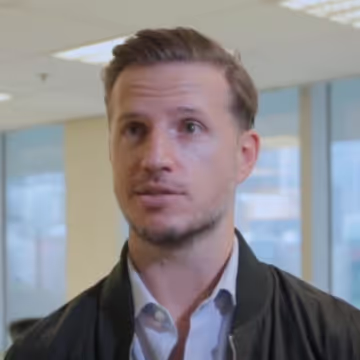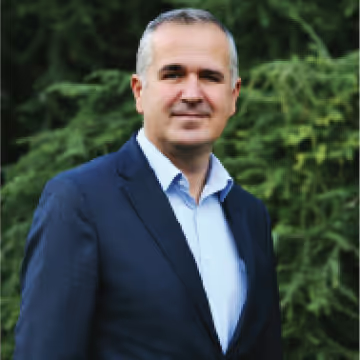Surprising fact: since its launch on 1 July 2010, the Latvia Residence by Investment program has offered a fast-track route that can unlock visa-free Schengen travel for qualifying investors.
This guide shows who the program serves and what to expect. It explains the two main routes: a business investment (€50,000 equity plus a €10,000 state payment and a company tax condition) and a real estate purchase (minimum €250,000 plus a 5% state fee). Both routes can include a spouse and dependent children under 18.
What you gain is the right to live, work, and study across the EU area, simple renewal rules with no strict minimum stay, and a clear timeline toward permanent residence after five years and possible citizenship after ten years. This practical overview gives investors decision-ready information on costs, timelines, and next steps for the latvia golden visa option.
Key Takeaways
- Schengen mobility and the right to live, work, and study are core benefits.
- Business route: ~€50,000 equity + €10,000 state payment; real estate: ≥€250,000 + 5% fee.
- Fast-track permit issuance and straightforward renewal with no strict physical presence rules.
- Family inclusion from day one; permanent residence after five years; citizenship possible after ten years.
- This commercial guide helps U.S. investors compare the latvia golden visa with other European options.
Understanding the commercial intent behind Latvian residency
This section explains why investors, entrepreneurs, and families choose the program as a gateway to the EU market.
The core commercial intent is simple: unlock EU market access, provide mobility for business travel, and create a secure base for expansion through a streamlined application tied to qualifying capital.
Who this Buyer’s Guide is for:
Who this Buyer’s Guide is for: investors, families, and entrepreneurs
Private investors seeking asset diversification, families looking for education and safety, and entrepreneurs planning EU operations will find clear options here.
The program issues a residence permit that mainly serves as a mobility and settlement tool. Schengen travel is a major benefit for business trips and flexible living.
- Lower-capital business routes suit cost-conscious investors and active founders.
- Property-based options work for those who prefer asset-backed strategies and long-term value.
- Family inclusion lets a spouse and dependent children join one application, lowering complexity and cost.
Key decision points include upfront capital, processing timeline (often 3–6 months), renewal comfort, and future eligibility for permanent status or citizenship.
Applicants should expect standard due diligence: clean criminal record checks and proof of sufficient funds to meet living standards. Reliable information and compliant structuring are vital to avoid delays.
Later sections provide detailed requirements, costs, and timelines so prospective applicants can budget and plan with confidence.
Latvian residency
A permit through investment creates a practical foothold in the EU, with predictable rights for holders and their families. In practice, this means legal residence and the ability to live and work in Latvia, plus short-term travel across the Schengen zone without extra visas.
Latvia is a member of the EU, the Eurozone, and Schengen. That status supports business banking, cross-border movement, and easier access to European markets.
The program offers two principal routes: equity investment into a Latvian company (around €50,000 plus company tax and a €10,000 state payment) or a real estate purchase (minimum €250,000 plus a 5% state fee).
- Practical benefits: live, work, and travel across Schengen with a valid residence permit.
- Qualification basics: meet the investment thresholds, supply clear documents, and show financial sufficiency.
- Progression: temporary permit can lead to permanent status and, eventually, citizenship subject to time and language rules.
Successful outcomes hinge on compliant structures and due diligence. For U.S. investors, engaging experienced local advisors streamlines obtaining latvian approval and reduces delays. Later sections detail costs, timelines, and step-by-step application guidance.
Residency by investment at a glance: key facts and benefits
Start here: a concise snapshot of the program’s core benefits and how it supports business and family plans.
Schengen mobility, work-study rights, and family inclusion
Live, work, and study in Latvia with a valid residence permit tied to your investment. Holders gain visa-free travel for short visits across the Schengen Area, useful for meetings and family trips.
Family coverage: a spouse and dependent children under 18 can join one application, simplifying planning for relocations and schooling.
No minimum stay for renewal and a fast-track path
There is no strict minimum stay to renew the permit, which suits globally mobile professionals. The application process is commonly completed within 3–6 months, allowing timing around school years or business cycles.
- Streamlined access to European opportunities and cost-competitive golden visa value.
- Rights are centered on Latvia for residence and employment, with short-term Schengen travel across member states.
- Eurozone membership supports stable banking, currency, and business planning; English is widely spoken, easing everyday life.
Next: upcoming sections detail qualifying investment routes, documentation, and costs so you can choose the best path for your goals.
Qualifying investment options: business vs. real estate
Two main investment options let applicants qualify for a residence permit: a business capital route and a property purchase. Each option meets the minimum investment tests and supports family inclusion.
Business investment: from €50,000 plus €10,000 state donation
Under the business route you contribute a minimum of €50,000 in equity to a qualifying company and make a €10,000 state payment. The company must meet ongoing tax performance targets to remain compliant.
Real estate route: property from €250,000 plus 5% state fee
The estate option requires buying real property priced at least €250,000 and paying a 5% state fee. This appeals to investors who want a tangible asset and simpler ongoing compliance.
Comparing flexibility, speed, and total cost
Both options typically process in about 3–6 months with correct documents. Upfront capital differs markedly: lower for the business path, higher for the estate path.
- Costs: capital outlay, state fees, legal and advisory expenses vary by option.
- Flexibility: business investment may offer quicker entry with less capital; real estate suits portfolio diversification.
- Ongoing compliance: maintain qualifying investment, file yearly proofs, and keep good records for renewals.
Market note: Riga and nearby areas show steady demand and reasonable valuations, but always perform thorough due diligence on company selection or property title before committing.
Eligibility, income thresholds, and clean criminal record requirements
Before you apply, confirm you meet basic eligibility and financial thresholds that underpin a strong application. This includes meeting the program investment rules and proving you can support yourself without public assistance.
Clean criminal record checks are mandatory. Applicants must supply police clearances from countries where they lived recently. Sourcing these early avoids processing delays.
Annual funds to sustain a standard of living
Applicants must show per year income or savings that meet national benchmarks.
- Single applicant: €15,480 per year.
- Couple: €20,640 per year.
- Married couple with one child: €22,188 per year.
Who can be included: spouse and dependent children
A spouse and dependent children under 18 may join the same application. Include certified marriage and birth certificates when you apply.
Translate and apostille documents where needed. Meeting these requirements and organizing proofs up front improves the chance of approval and smoother renewals. Language tests are only required later for permanent status or citizenship, not at initial permit stages.
Documents you’ll need for a successful application
A complete file speeds approval and keeps your investment timeline on track. Below is a practical checklist to prepare before submitting your application for a residence permit tied to an investment.
Identity, investment proofs, and supporting records
Core identity documents: valid passport, recent passport photos, and completed application forms per program requirements. Keep originals and certified copies in one secure folder.
- Investment evidence: company equity transfer or notarized property deed plus payment confirmations to prove the qualifying investment.
- Compliance records: police clearance certificates, proof of health insurance, and proof of address as required by authorities.
- Financial documentation: bank statements and proof of funds that meet annual living cost thresholds.
- Family records: marriage and birth certificates to include a spouse or children on the application.
Translations and legalization: provide certified translations and apostilles when necessary to meet Latvian standards. Match document issue dates to the submission so nothing expires during processing.
Collection and ongoing care: plan to visit Latvia within three months after approval to collect the permit ID card. Keep originals and certified copies for renewals and audits, and consider hiring qualified advisors to pre-check documents and reduce the risk of delays.
Costs, fees, and timelines you should plan for
Know the upfront capital, likely processing time, and yearly carrying costs before you apply. Clear budgeting reduces surprises and speeds the application process.
Government fees, donations, and capital outlay
The two main routes differ sharply in cost. For the business path expect a minimum investment of €50,000 equity plus a €10,000 state payment. The real estate route needs at least €250,000 for property and a 5% state fee.
Processing timeframes: from 3 to 6 months
Typical processing ranges from 3–6 months when documents, proofs, and funds are ready. Use reputable advisers to avoid delays and extra verifications.
Ongoing renewal and per-year considerations
- Permit validity: the main permit runs for five years with annual ID card renewals.
- Annual costs: insurance, company compliance or property taxes, and maintenance should be budgeted per year.
- For estate owners, add management fees and rental handling as needed.
Plan contingencies for translations, apostilles, and unexpected checks. The lack of a strict minimum stay supports global mobility and suits families who align timing with school years. Transparency in fee schedules and reputable providers helps protect your budget for a successful golden visa or latvia golden visa application.
Pathways after entry: temporary residence, permanent residence, citizenship
After you enter, clear pathways lead from a temporary permit to long-term status and, eventually, citizenship. The initial phase gives time to settle, meet obligations, and plan for the next stage.
Temporary permit validity and renewals
The temporary residence permit lasts up to five years. Holders must renew the ID annually and keep the qualifying investment in place.
Keep records current: bank statements, proof of investment, and tax filings help avoid gaps when renewing the permit.
Transition to permanent residence
Typically, applicants can apply for permanent residence after about five years. Authorities often expect four full years of physical residence within the five-year window.
Key criteria include passing a basic language test (A2), and demonstrating knowledge of national history and the anthem. Continuous lawful stay and clean records matter.
Permanent residency brings stronger rights and long-term stability as a base in the EU for business and family life.
Eligibility for citizenship
Citizenship is generally possible after ten years of legal, continuous residence. Applicants should plan early for language study and civic preparation.
Note that dual nationality rules are strict: renunciation of prior citizenship is usually required, though limited exceptions can apply.
- Plan years ahead: integrate language study and residence-day tracking.
- Maintain document continuity from temporary to permanent stages to prevent delays.
- Consult advisers to align business and travel plans so you can apply permanent rights smoothly.
Life in Latvia: quality of life, education, and the economic environment
Everyday life in Latvia blends safe streets, green parks, and practical services that suit relocating families. Cities feel compact and walkable, making school runs and errands simple for parents with children.
Healthcare, safety, and English-language accessibility
The public health system is reliable and is complemented by private clinics that often offer short waits. Many private providers have English-speaking staff, which helps newcomers access care quickly.
Crime rates are low compared with other EU areas, and neighborhoods offer family-friendly amenities and parks.
Schools, universities, and international options in Riga
Options include state schools, international schools in Riga, and reputable universities for higher study. International curricula ease transitions for non-native speakers and help with long-term planning.
Business climate: EU, Eurozone, and sector opportunities
Investors find growing sectors in IT, logistics, manufacturing, and renewables. Eurozone membership gives currency stability and smoother cross-border travel and transactions.
- Strong air links from Riga support business trips and family visits.
- Explore neighborhoods to match schooling and commute needs when planning long-term residence.
- Overall, the country balances affordability, safety, and European access for investors and their families.
What’s changing: 2025 immigration law updates and why starting now matters
Regulatory shifts expected in 2025 increase the value of starting an application under today's rules. Market sources point to proposed changes that could affect thresholds, fees, and documentary checks. That makes timing important for U.S. investors who value predictability.
Current rules vs. proposed adjustments
Baseline today: two clear routes remain active. The business path needs about €50,000 equity plus a €10,000 state payment. The property path requires a minimum €250,000 purchase and a 5% state fee.
Why apply now: filing under current rules can lock in those amounts and process under the existing timeline — typically 3–6 months — with no strict minimum stay for renewals. Historically, this program has been among the more cost‑effective golden visa options in Europe.
- Potential changes to monitor: thresholds, fees, paperwork, or renewal rules.
- Start due diligence early: gather police certificates, bank proofs, and investment documents.
- Work with experienced advisors to manage timelines and build contingency plans if rules shift in 2025.
Long-term goals like permanent status and citizenship still depend on years of lawful residence and language criteria, so plan both the near-term application and multi-year path together.
The step-by-step application roadmap
A stepwise approach reduces surprises when applying for a permit tied to an investment. Follow these practical stages to keep your timeline on track and avoid common delays.
Select your investment option and perform due diligence
Step 1: Define goals and pick between the business equity route or the real estate route.
Step 2: Do due diligence on the company or the property. Verify thresholds, titles, and tax compliance.
Prepare documents, submit, and track processing
Assemble key documents: passport, investment proof, clean criminal record, proof of funds, family certificates, and health insurance.
Submit a complete application package to reduce back-and-forth. Typical processing runs 3–6 months. Track the application and reply promptly to requests.
Arrival to collect your residence permit card
On approval, travel within three months to collect the residence permit card in person. The permit is valid five years with annual ID renewals.
Keep records organized, maintain the qualifying investment, and plan family logistics for schooling and healthcare. Engage reliable advisors to streamline each step and protect your golden visa goals.
Conclusion
Smart investors pick the path—company capital or real estate—based on capital, speed, and long‑term plans. The choices are clear: a company route at a ~€50,000 capital level plus a €10,000 state payment, or property from €250,000 plus a 5% state fee.
Outcome: both options grant a permit that supports visa‑free travel across the Schengen area and the right to live, work, and study in Latvia. Processing typically runs 3–6 months, and there is no strict minimum stay to renew the permit.
Plan ahead: you can apply permanent status after about five years and later apply Latvian citizenship after ten years of legal residence. Family inclusion is streamlined—spouses and dependent children join one application.
Act now: pending 2025 updates make early preparation wise. Engage qualified advisors to structure company capital or complete property due diligence and start your application with confidence.
FAQ
What is the main benefit of obtaining residency in Latvia?
The main benefit is access to the Schengen Area for travel, plus the right to live, work, and study in an EU member state. Holders can include spouses and dependent children in their application, opening family mobility and educational choices in Riga and other cities.
Who should consider this buyer’s guide?
Investors, families, and entrepreneurs seeking EU market access, education for children, or lifestyle change should read this guide. It helps compare business investment and property routes, outlines costs, and explains eligibility, including clean criminal record requirements.
What are the principal investment options?
Two common pathways are business investment and real estate purchase. Business options often start from around €50,000 plus a state donation. The property route usually requires buying a home priced at roughly €250,000 and paying an additional state fee near 5%.
Is there a minimum physical stay required each year?
There is no strict minimum stay for renewal in many cases, but applicants must demonstrate genuine ties and continued compliance with permit conditions. Spending significant time in the country supports later claims for permanent status and eventual citizenship.
Can family members be included in the application?
Yes. Spouses and dependent children can be added to the application. Documentation must prove the relationship and dependency, and all family members must meet basic admissibility criteria such as health coverage and clean criminal records.
What income or funds must applicants show?
Applicants need to demonstrate sufficient funds to cover living costs. Typical guidance sets annual amounts for a single person, a couple, and a family, reflecting local living standards. Exact figures depend on household size and the chosen investment option.
What documents are required for a successful application?
Essential documents include valid passports, proof of investment (company registration or property deeds), bank statements, health insurance, criminal record checks, and translations where needed. Supporting records such as education or employment proofs may also help.
How long does processing usually take?
Typical processing ranges from about three to six months. Timelines vary by case complexity, completeness of paperwork, and current administrative workloads. Some applications move faster with clear investment proofs and professional legal support.
What fees and costs should I budget for?
Budget for government application fees, state donations (if applicable), legal and due diligence costs, and the capital tied up in business or property. Also plan for translation services, notarization, and possible travel expenses for biometric appointments.
When can I apply for permanent residence or citizenship?
Permanent residence typically becomes an option after five years of legal, uninterrupted stay. Citizenship eligibility usually requires about ten years of residence, language ability, and integration criteria. Meeting residency terms and local language standards is essential.
How does the business investment route compare to buying property?
Business investment can offer flexibility and potential returns but requires active management or a viable company structure. Property purchase is often simpler to document but ties capital to real estate. Compare speed, total cost, and ongoing obligations before choosing.
Will I be allowed to work or study after approval?
Yes. Holders typically gain work and study rights within the country. That freedom supports family integration and access to local universities, including many programs in English, especially in Riga.
Are there upcoming legal changes to consider?
Proposed immigration adjustments in 2025 could affect investment thresholds and procedural rules. Starting the process now may lock in current benefits, but applicants should consult current legal advice to account for any new measures.
What are the first steps in the application roadmap?
First, choose the investment route and perform due diligence. Next, gather and authenticate documents, submit the application, and track processing. After approval, arrange travel and collect the permit card in person.
Do applicants need to speak the local language?
Basic language knowledge helps long-term integration and is often required for citizenship. For permit applications, many services and legal advisors operate in English, and essential public services in Riga are accessible to English speakers.























